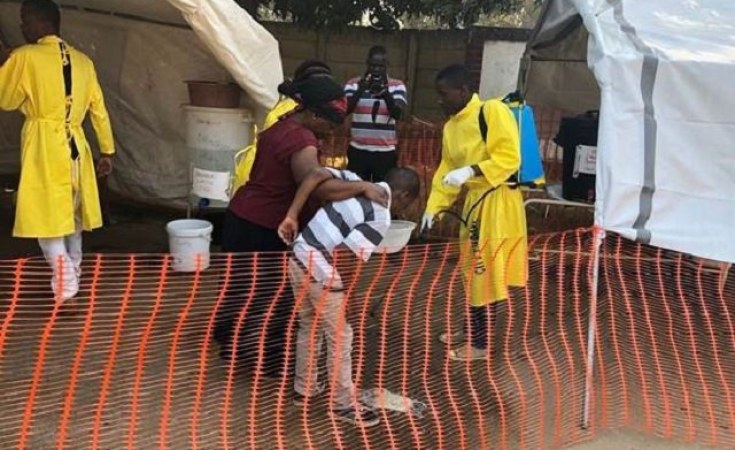Rumbidzayi Zinyuke Senior Health Reporter
As Zimbabwe yesterday marked one year since the beginning of the cholera outbreak, significant strides have been made in containing the disease including the rollout of the oral cholera vaccine (OCV).
To date, over 1,4 million people have received the oral vaccine since the beginning of the campaign two weeks ago.
The OCV is among the recommended and effective interventions for cholera control that complements other water and sanitation measures.
Giving the weekly cholera update, Ministry of Health and Child Care deputy cholera incident manager Dr Stephen Karimu said the vaccine had brought relief to the country.
"The OCV gave us a breathing space; when one gets one shot, that person is protected for six months. In an ideal environment, you are supposed to get two shots in a space of two to six weeks apart and if you get a full complement of two shots, protection goes up to three years.
"So this gives us breathing space to organise the drivers of cholera," he said.
The vaccine has been deployed to the most at-risk districts in six provinces and according to Dr Karimu, some provinces had already recorded 100 percent vaccination coverage.
For areas that have not reached their targets, Dr Karimu said one of the contributing factors to the slow rollout was the staggered delivery of the vaccine doses to the country.
The vaccination campaign, which is being carried out on a house-to-house and cluster-to-cluster basis, will reach 2,3 million people living in 160 wards within 26 districts high risk districts in Harare, Mashonaland West, Mashonaland East, Mashonaland Central, Manicaland, Masvingo and Midlands. These districts are considered the main drivers for the outbreak.
As at February 11, the country has recorded 23 905 suspected cholera cases, 2 511 confirmed cases, 23 147 recoveries, 71 confirmed deaths and 454 suspected deaths.
"You might remember that the first case of cholera was recorded on February 12, 2023 in Chegutu. It has taken us a full year. Ideally an outbreak should be able to be controlled within two weeks so 12 months on we still have cholera."
"Our case fatality rate has gone down to 2,2 percent from 1,9 percent, which reflects an improvement in case management. That is not the ideal environment, we want it to be less than 1 percent," said Dr Karimu.
He said the majority of cases had been reported in Harare which had contributed 8 042 cases, while Manicaland and Masvingo were the second worst hit provinces with 5 981 and 2 665 respectively. Bulawayo has been the least hit with 29 cumulative cases since last year.
"In terms of the current raging hotspots in Harare, we are now seeing cases in Mbare over and above the traditional hotspots of Kuwadzana, Glen View and Budiriro. We are also seeing cases in Mashonaland Central, particularly Centenary, Bindura and Shamva. In Chitungwiza, Seke is a contributing hotspot. In terms of care, we have a network plus or minus 153 cholera treatment camps across the country," added Dr Karimu.


